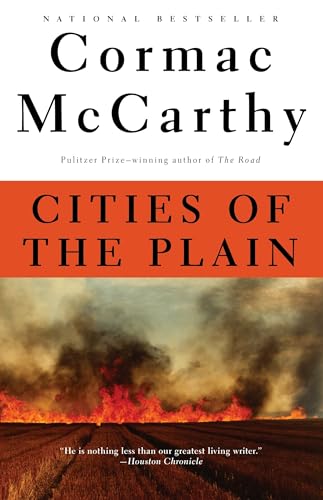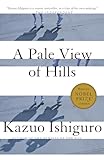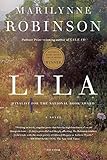In 2020, I fulfilled a goal that I set for myself in college and completed gradually over the next twelve years—to read every novel that Cormac McCarthy has ever published. As it happened, I finished Cities of the Plain, the last book on my list and the final installment of McCarthy’s Border Trilogy, while on vacation in Japan. Like the best of McCarthy’s works, Cities of the Plain is saturated with sadness and longing for a time gone by, for an epoch that has violently passed away, and for the disordered lives left behind in its wake. For Billy Parham and John Grady Cole, the young heroes of the story, the rough borderlands of Texas and New Mexico have already changed beyond recognition by the time they land jobs as ranch hands in the early 1950s. “Anyway this country aint the same,” Parham laments one evening on the cattle trail. “The war changed everything. I don’t think people even know it yet.”
As is often the case with McCarthy, the strength and naïveté of youth is contrasted starkly with the frailty and mournful wisdom of age. In one particularly striking scene, an old man runs out of the house in total darkness, disoriented by a vivid dream. Later, as the old-timer sits at the table sipping coffee, the narration breaks from its objective point of view and forces us to consider the subjective mysteries of experience. “In his time the country had gone from the oil lamp and the horse and buggy to jet planes and the atomic bomb but that wasnt what confused him. It was the fact that his daughter was dead that he couldnt get the hang of.”
I was in Japan for two weeks during Chinese New Year, on break from the school in Taiwan where I’ve been teaching for the past five years. Had I known at the time that it would be my last trip out of country for a while, I might have felt a bit more wistful as I wandered the pristine, cold streets of Osaka and Kyoto. By a stroke of good fortune, I arrived back in Taiwan in early February, right as the first reports of COVID were coming out of China, but before widespread travel restrictions were in place. At the airport in Taichung, security agents, following early rumors that the disease was linked to infected meat, inspected our luggage for animal products, but took no temperatures and collected no personal information. Almost no one wore a mask.
In Kazuo Ishiguro‘s novel A Pale View of Hills, a Japanese woman living in England remains in denial about the role she played in her adult daughter’s suicide. She reminisces on her life in Nagasaki after the war, when most Japanese people were eager to put the past behind them. Etsuko, too, attempts to make a clean break. “If you don’t like it over there, we can always come back,” she tells her daughter as they prepare to follow a British man overseas. “If you don’t like it over there, we’ll come straight back.”
But no. There is no going back.
As I write this, votes in six states are still being processed. After we were promised a landslide this time. Repudiation. Collective redemption. The nightmare expunged. I think about one of Gore Vidal‘s history novels, 1876. A hundred and forty-four years later and the language of American corruption is still the same. The popular vote rendered meaningless in the face of an electoral college numbers game. An unpopular president interfering with the vote counts in specific states. Vidal’s protagonist, Charles Schuyler, admires the Democratic candidate Samuel Tilden for his commitment to political reform, but turns a blind eye to his Southern allies’ tactic of suppressing black voters through violence.
Now it’s finally starting to turn cold on the island, which means the year is almost over. It’s been months since our last confirmed case of the virus, but I still wear a mask off and on. At night I try to make time to finish Marilynne Robinson‘s Lila, but the days are long and tiring, and it’s easy to get distracted by the news. Taiwan is beautiful, safe, and free, but I never expected to be here this long. Even so, I fear the country I left behind has changed in ways I wouldn’t care to imagine. In ways I don’t yet even know.
In the meantime, I’m reminded of the famous fig tree speech from The Bell Jar, which I read for the first time this year at the age of thirty-one. Better late than never. “I wanted each and every one of them,” Esther Greenwood says, “but choosing one meant losing all the rest…”
I hope to read more in the new year. I hope this world will retain some of its beauty.
I want to live. I want to choose. I want to gather fruit.
More from A Year in Reading 2020
Don’t miss: A Year in Reading 2019, 2018, 2017, 2016, 2015, 2014, 2013, 2012, 2011, 2010, 2009, 2008, 2007, 2006, 2005













